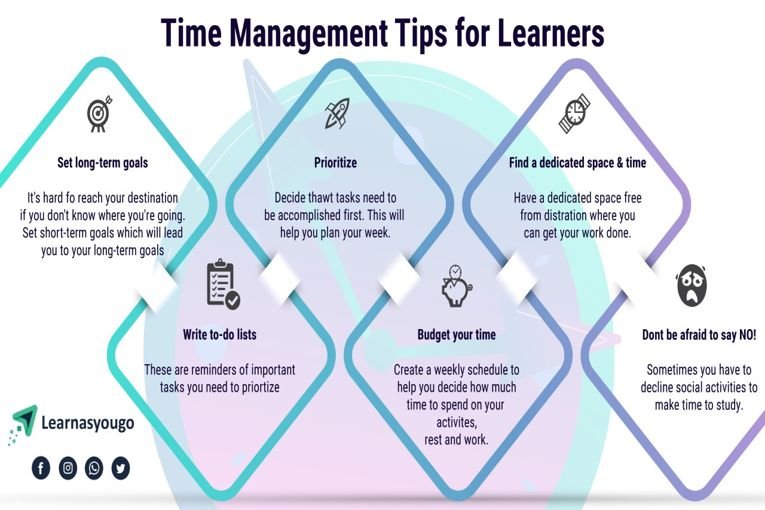Introduction
Time management is a crucial skill for students to master in order to succeed academically and maintain a healthy work-life balance. With the constant demands of assignments, exams, extracurricular activities, and social commitments, effective time management can make a significant difference in a student’s academic performance and overall well-being. In this article, we will explore some of the most effective time management tips that students can utilize to enhance their productivity and reduce stress.
Set Clear Goals and Prioritize Tasks
One of the key principles of effective time management is setting clear goals and prioritizing tasks. Begin by identifying your short-term and long-term academic goals. Break down these goals into smaller, manageable tasks, and prioritize them based on urgency and importance. Creating a to-do list or using a planner can help you stay organized and ensure that you are focusing on the most critical tasks first.
Create a Study Schedule
Establishing a consistent study schedule can help you allocate time for studying, completing assignments, and preparing for exams. Determine the most productive times of the day for studying based on your energy levels and concentration. Designate specific blocks of time for each subject or task, and try to stick to your schedule as much as possible. Remember to include breaks in your schedule to prevent burnout and maintain focus.
Avoid Procrastination
Procrastination is a common challenge for many students, but it can severely impact your productivity and quality of work. To combat procrastination, try breaking tasks into smaller, more manageable parts and tackling them one at a time. Set deadlines for yourself and hold yourself accountable for meeting them. Additionally, eliminate distractions such as social media, notifications, and unnecessary web browsing during study sessions.
Use Time Management Tools
There are numerous time management tools and apps available that can help students organize their schedules, set reminders, and track their progress. Utilize tools such as calendars, task managers, and productivity apps to streamline your workflow and stay on top of deadlines. Experiment with different tools to find the ones that work best for your personal preferences and study habits.
Practice Effective Study Techniques
In addition to managing your time efficiently, it is essential to employ effective study techniques to maximize your learning outcomes. Experiment with different study methods such as active recall, spaced repetition, and the Pomodoro technique to enhance your retention and comprehension of course material. Find a study environment that is conducive to your concentration, whether it be a quiet library or a cozy corner in your home.
Seek Help and Support
Don’t be afraid to reach out for help when needed. Whether it’s seeking clarification from professors, attending tutoring sessions, or forming study groups with classmates, collaborating with others can provide valuable support and insights. Additionally, prioritize your mental and physical well-being by getting enough sleep, eating healthily, exercising regularly, and practicing stress-relief techniques such as mindfulness or yoga.
Reflect and Adjust
Regularly reflect on your time management strategies and evaluate their effectiveness. Identify any areas where you may be struggling or wasting time, and make adjustments accordingly. Be flexible and willing to adapt your approach as needed to optimize your productivity and achieve your academic goals.







